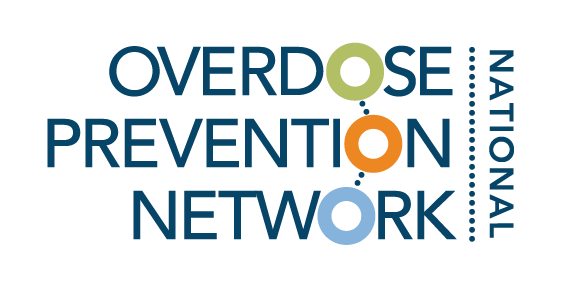
Resource Library
Toolkits, guides, and other resources vetted by experts in overdose prevention.
Filter by category and tags, or search by keyword (ex. COVID-19, harm reduction).
YOR California 3 Funding Awards Released
The California Youth Opioid Response (YOR California) is pleased to announce 43 grant awards for the third round of State Opioid Response (SOR) funding of $12 million, subsequent to a statewide RFA process, and over 70 applications.
YOR California seeks to strengthen capacity and access to prevention, treatment, and recovery services, as well as access points to Medication-Assisted Treatment, for youth (ages 12-24) and their families. This opportunity is also designed to foster the creation, coordination and strengthening of local level multi-system networks and to encourage the development of new partnerships between agencies that touch youth.
YOR California
YOR California is a joint effort by the California Institute for Behavioral Health Solutions and Advocates for Human Potential, Inc. and funded by the California Department of Health Care Services (DHCS), Community Services Division, Federal Grants Branch that supports funding community-based organizations throughout California, whose efforts spanning the continuum of prevention, intervention, treatment and recovery services for youth.
OD Free Marin Website
This website is an great example of how local coalitions in California can communicate how to access naloxone, treatment, and other resources locally.
Fentanyl is Forever Campaign
This campaign was created by the Santa Barbara County Department of Behavioral Wellness. It is an example of how a community has developed an awareness campaign discussing fentanyl, how to access naloxone and how and where to find local treatment options.
Local EMS Lead the Country with Opioid Treatment Model
This webpage overviews the Contra Costa County Emergency Medical Services (EMS) Pilot Project. It is the first in the country to launch a pilot project for paramedics to provide medication for addiction treatment (MAT) directly to patients in withdrawal from opioid use disorder. Lead by Dr. Gene Hern, the EMS Project Director of the CA Bridge program at the Public Health Institute, Dr. David Goldstein, of the Contra Costa County Emergency Medical Services Agency, and Dr. Ori Tzvieli, the Medical Director of Contra Costa County Public Health, the project has started serving patients in the region.
ODMAP Platform and User Guide
You can utilize this user guide to understand and learn the ODMAP platform and community user application.
ODMAP Factsheet
This fact sheet provides an overview to show how the Overdose Detection Mapping Application Program can help communities respond effectively to overdoses.
Using ODMAP Data to Target Prevention Activities
This brief highlights the Alliance for Prevention and Wellness’s (APW) use of Overdose Detection Mapping Application Program (ODMAP) data to target a broad range of substance use prevention and education activities to ZIP codes with the highest rate of overdoses.
Evidence-Based Strategies for Preventing Opioid Overdose: What’s Working in the United States
This document is to assist community leaders, local and regional organizers, non-profit groups, law enforcement, public health, and members of the public in understanding and navigating effective strategies to prevent opioid overdose in their communities.
Wound Care & Medical Triage for People Who Use Drugs and the Programs That Serve Them
This comprehensive guide provides information and recommendations regarding general health, safer use practices, common viral, fungal, parasitic, and other injection-related infections, overdose and overamp, tapering, withdrawal, medications for opioid use disorder, and seeking medical care.
Key Considerations for Applying an Equity Lens to Collaborative Practice
This brief helps collaborative teams formally assess existing policies to determine whether, and to what extent, they contribute to disproportionate and disparate outcomes for the families being served.
Substance Use Management Consultation
This website provides clinically supported advice on substance use management for healthcare providers
Clinical Provider Quick Tips Addressing Substance Use in Primary Care Settings
"This Toolkit consists of a series of ""quick clinical tips""- bringing state-of-the-art resources and practical tools to busy clinicians addressing patient stimulant and fentanyl use in primary care
settings."
California Harm Reduction Supplies
This presentation overviews all of the materials included in the Office of Aids Harm Reduction Supply Clearinghouse with an image, function, and why it is being offered as harm reduction supplies.
Harm Reduction Course Bundle
The National Harm Reduction Coalition has a 3 course bundle that includes: overdose prevention and response, engaging people who use drugs, and foundations of harm reduction. If you are a California resident you can access this bundle for free.
Gold Standard Podcast with Dr. Sue
National Harm Reduction Coalition’s Medical Director Dr. Kim Sue joins various guests from programs across the country to highlight the importance of low-barrier access to medications for opioid use.
Readiness Assessment for Harm Reduction Vending Machines: A Decision Making Tool for Organizations and Communities
When considering a strategy like harm reduction vending machines it is critical to understand community context and to get buy-in from staff, key community stakeholders, partners, and program participants. To help with this, Bloomberg American Health Initiative fellows Callie Kaplan, Zach Kosinski, Nicole Barnes and Erin Russell, under the guidance of Dr. Susan Sherman, created a readiness toolkit to support agencies, community-based organizations, and advocacy groups to make informed decisions about the use of harm reduction vending machines in their communities.
Wellbeing Wednesdays - Episode 7: "Advancing Health Equity"
Hear Rochelle P. Walensky, M.D., MPH, director of the Centers for Disease Control and Prevention (CDC), and Chuck Ingoglia, the National Council’s president and CEO, discuss the state of health equity in America, barriers to treatment, what equitable systems of care look like and more.
Pregnancy and Substance Use: A Harm Reduction Toolkit
This toolkit was created for supporting pregnant and parenting people who use drugs, their loved ones, and their service providers. This toolkit was written in collaboration with the National Hard Reduction Coalition and the Academy of Perinatal Harm Reduction.
Public Safety-Led Community-Oriented Overdose Prevention Efforts (PS-COPE) Concept Paper
This PS-COPE Concept Paper is a new approach to community-oriented overdose prevention and response in Black, Indigenous, and People of Color (BIPOC) Communities. It is a supplemental resource that describes the cross-cutting principles of trauma-informed, recovery-oriented, procedurally just and PS-COPE approaches, and how each of these frameworks brings unique value to working within BIPOC communities.










